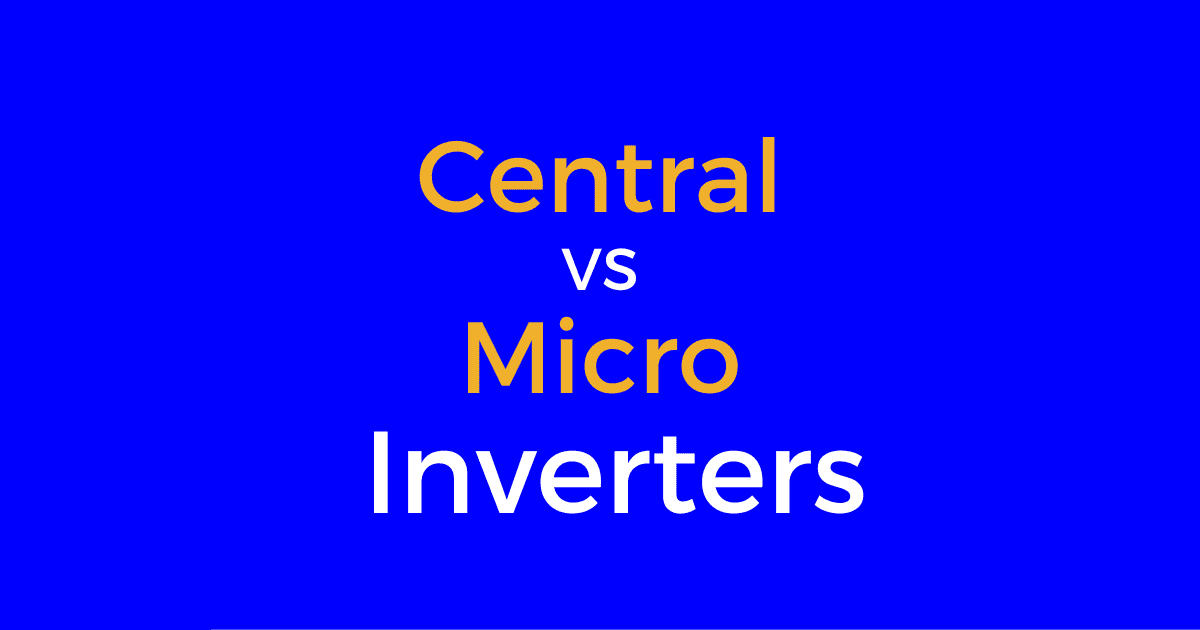Central Inverters vs Micro Inverters: Choosing the Right Inverter for Your Solar Power System
When it comes to designing a solar power system, one of the key decisions is selecting the right inverter. Two popular options available are micro inverters and central inverters. Each type has its own advantages and considerations that can impact system performance and efficiency. In this blog post, we will delve into the differences between micro inverters and central inverters, discuss their pros and cons, and provide recommendations to help you make an informed choice for your solar installation. Let’s explore the world of inverters and shed light on which option suits your needs.
Understanding Central Inverters for Solar Systems
Central inverters, also known as string inverters, have been the traditional choice for solar power systems. They perform the vital task of converting direct current (DC) power produced by solar panels into usable alternating current (AC) electricity. Here are the key points to consider:
Functionality: Central inverters operate as a single unit that converts power from DC to AC.
Advantages: Central inverters are cost-effective, making them suitable for larger systems. They can handle high power capacities efficiently.
Limitations: Shading or failure of one panel in a string can impact the overall system performance. The entire string may be affected if one panel underperforms.
Enhancing Central Inverters with DC Optimizers
To address the shading issue associated with central inverters, DC optimizers were introduced. These devices optimize the performance of individual panels while maintaining the DC power flow. Consider the following aspects:
Functionality: DC optimizers enable panel-level optimization by regulating the DC voltage of each panel in a string.
Advantages: By optimizing each panel separately, DC optimizers mitigate the impact of shading or panel failure on the entire system. They help maximize the overall energy harvest.
Limitations: While DC optimizers offer panel-level optimization, they still rely on a central inverter for the conversion of DC to AC power. This means the limitations of central inverters, such as potential string underperformance, may still apply.
How Micro Inverters Work and Their Benefits
Micro inverters are an alternative approach that revolutionizes the way solar power is harnessed. Instead of relying on a central inverter, micro inverters are installed under each individual solar panel. Here’s what you need to know:
Functionality: Micro inverters convert DC power to AC power under each panel, enabling independent operation.
Advantages: The primary advantage of micro inverters is panel-level optimization. Each panel performs optimally, unaffected by shading or panel failures elsewhere in the system. This can significantly increase overall system efficiency and output.
Limitations: Micro inverters may face challenges related to heat on the roof, as the conversion process occurs right beneath the panels. This can impact their efficiency and output. Additionally, micro inverters may have a limited AC output capacity, which can affect their suitability for systems with high power demands.
Choosing the Right Inverter: Key Considerations
Choosing the right inverter for your solar power system depends on several factors, including system requirements, environmental conditions, and individual needs. Here are some recommendations to help you decide:
- All South-Facing or Continuously Sunlit Systems: For systems with optimal sunlight exposure throughout the day, central inverters paired with DC optimizers are recommended. This combination ensures higher power conversion efficiency and cost-effectiveness.
- Individual Panel Optimization: If individual panel optimization is crucial due to shading concerns or other factors, micro inverters are the ideal choice. They offer panel-level data monitoring and prevent output reduction caused by shading or panel failures.
- Inverter Manufacturers: At Supreme Solar, we recommend two leading inverter manufacturers: SolarEdge and Enphase. These brands have proven track records for both central inverters with optimizers and micro inverters. Consider their product offerings, compatibility with your solar panels, and customer support when making your decision.
Conclusion: Finding the Best Inverter for Your Solar Needs
Choosing the right inverter is crucial for the performance and efficiency of your solar power system. Understanding the differences between micro inverters and central inverters is key to making an informed decision. By evaluating your system requirements, considering environmental conditions, and factoring in individual needs, you can select the inverter type that aligns best with your goals. At Supreme Solar, we are committed to providing top-quality solar solutions, and our team of experts is ready to assist you in choosing the perfect inverter for your solar installation. Embrace the power of solar energy and unlock the full potential of your system with the right inverter choice.





